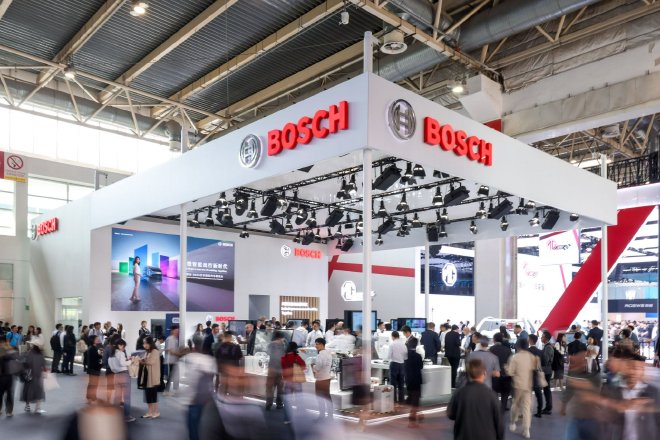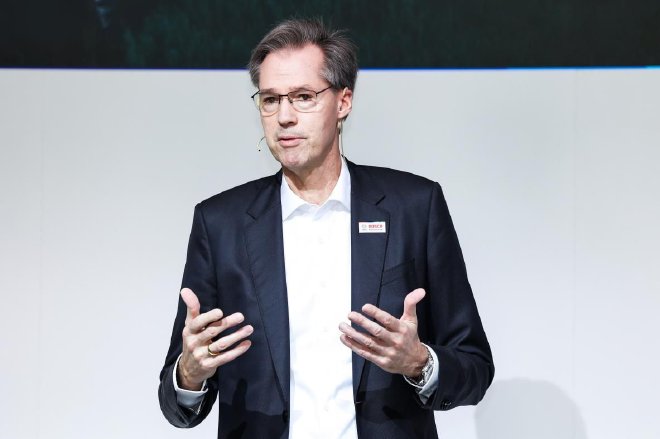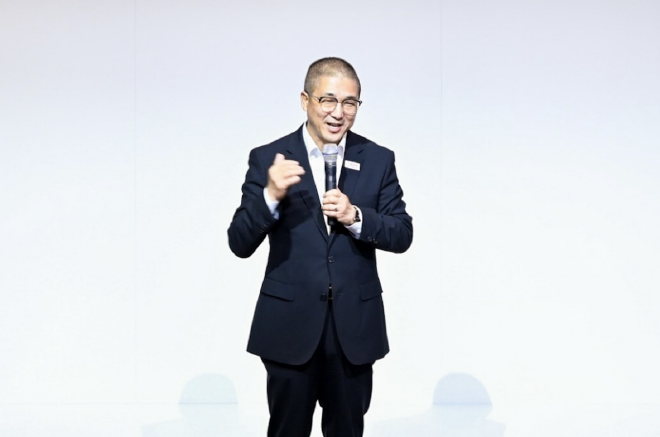At this year’s Beijing Auto Show, Bosch Group showcased a wide range of products, including electric drive systems, intelligent cockpits, advanced intelligent driving technologies. This aligns with Bosch’s long-term strategy of “rooted in China, serving China”. Based on this strategy, Bosch’s Intelligent Mobility Group in China achieved a growth of 8.2% in 2023, reaching 112.1 billion RMB, with sales to Chinese automakers accounting for about 60%.
However, even Bosch, a veteran giant, has to face a series of variables in the current surge of technology and products. Especially in the local Chinese market, competitors are rising rapidly, and customer demands are becoming more diverse. How to continue deepening localization, seize the opportunities brought by intelligent travel, is also a topic that Bosch Group must face. During the group interview after the press conference, Marcus Hayn, Chairman of Bosch Intelligent Travel Group, and Wang Weiliang, President of the Board of Directors of Bosch Intelligent Travel Group in China, answered a series of questions about localization. Domestic price wars are becoming increasingly fierce. How should suppliers respond? As a supplier, Bosch also feels the pressure of price wars in the domestic market. According to Marcus Hayn, not only in the automotive industry, but for any industry, it is very important for companies to be able to generate profits. With profits, research and development can be done to provide high-quality products to users and consumers. If an industry or a company cannot generate reasonable profits, it is not possible for long-term healthy development. Bosch can accept no profits during the investment period temporarily, but it cannot continue indefinitely. There must be a point in time, otherwise the company cannot develop long-term and healthily. Although currently in a highly competitive industry, everyone should uphold a cooperative relationship, or “competitive cooperation,” so that everyone can bring more competitive products to end consumers. Bosch welcomes benign competition.
Wang Weiliang mentioned that the Chinese automotive industry needs to become stronger and more competitive on a global scale. Key factors include innovation and technology, as well as resilient and reliable supply chains. Bosch, with over 100 years of experience, offers reliable guarantees in innovation, delivery, quality, and globalization. Therefore, China’s automotive industry requires Bosch, and Bosch needs China’s automotive industry.
Launch of a more competitive advanced intelligent driving solution. Urban driving conditions will inevitably move towards mapless. Currently, Bosch’s advanced intelligent driving solution is based on the Orin-X chip. Bosch’s solutions include market universal products and high-end customized products. The future of urban driving conditions becoming mapless is inevitable. Advanced autonomous driving using high-precision maps is just a process. Hybrid/fuel vehicles are clearly lagging behind in intelligence compared to pure electric vehicles. In the opinion of Markus Hayn, the trend of electrification will continue. In different driving scenarios, such as long-distance driving demand or inadequate charging facilities, traditional models are still needed. In some markets, the development speed of hybrids is indeed faster than that of pure electric vehicles. Additionally, in terms of hybrids and range extenders, their architecture is not yet ready for “software-defined cars.” Hybrid or internal combustion engine models are clearly lagging behind in intelligence compared to pure electric vehicles. For end users, this is not desirable. Vehicle manufacturers will catch up in terms of architecture. The automotive industry not only relies on technology but also requires an international ecological system. Wang Weiliang mentioned that the development of joint venture brands in China over the past ten to twenty years has led to technological advancement and market maturity. Independent brands have also made significant contributions to the growth of the local automotive industry in China. It is important to realize that the automotive industry is international, and we must focus on international development. Both joint ventures and state-owned enterprises have specific and appropriate market positions. We need to establish an international automotive industry ecological system. Chinese new energy vehicles still have opportunities to export to Europe. Markus Hayn provided a valuable perspective on the European market, where the electrification has not developed as expected due to subsidy cancellations. Chinese manufacturers can still export to Europe, especially with affordable electric cars. This presents an opportunity for Chinese companies to enter the market. There is potential for millions of units in the European market, which currently has around 14 million vehicles sold annually.


